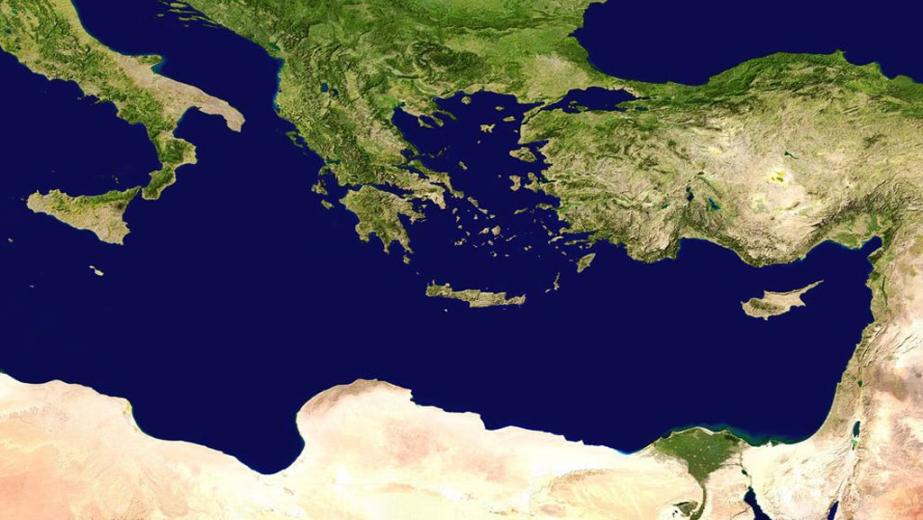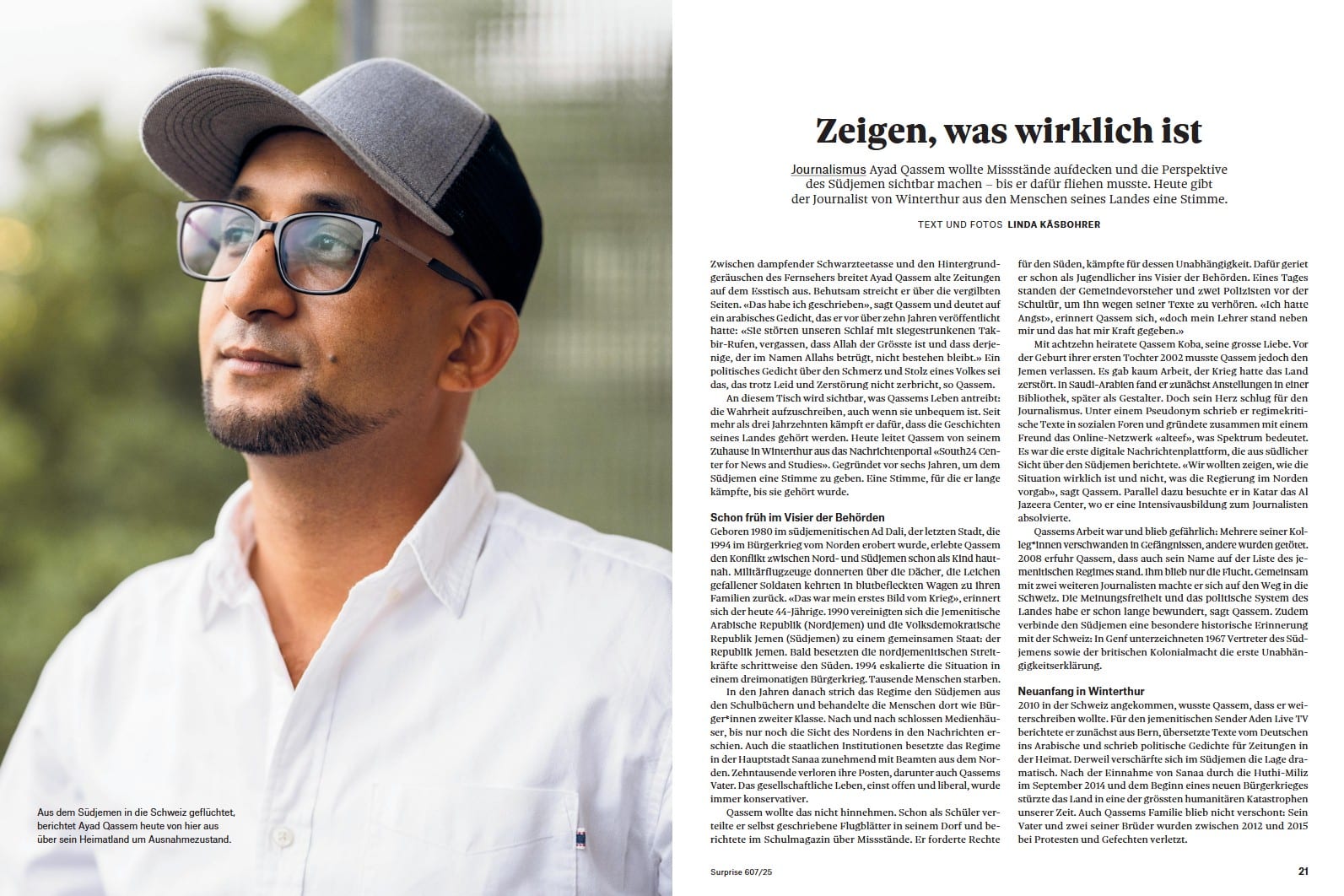
SETAV
09-05-2024 الساعة 8 مساءً بتوقيت عدن
If the Houthis or Iran succeed in delaying international navigation traffic through these seaways, the global economy will likely face an unprecedented choking crisis.
Abdullah Al-Shadli (South24)
On May 3, the Iran-backed Houthi militia announced the expansion of their maritime military attacks to include the Mediterranean Sea, situated nearly 1900 km from Yemen. The escalation is part of what they call “the fourth stage” of their operations against vessels they deem to be linked to Israel, or those heading to Israeli ports, against the backdrop of the Jewish state’s war on the Palestinian Gaza Strip.
The announcement came one day after the Houthi Leader, Abdulmalik Al-Houthi, said during a speech that since October, his group has targeted 107 commercial and military ships with ties to Israel, the US, and Britain in the Red Sea, the Gulf of Aden, and the Indian Ocean. He vowed they would continue and escalate naval operations over the coming period.
So, are the Houthis capable of striking targets in the Mediterranean Sea? And if this happened, what would the ramifications be?
The Houthis’ capabilities
Theoretically, the Houthis could hit targets in the Mediterranean Sea from the nearest point within Yemen. Their arsenal includes ballistic missiles, with ranges varying between 1600 and 1900 km, and Iranian-made Shahed-136 drones, which have a range of up to roughly 2000 km.
However, striking targets in the Mediterranean Sea would be a very difficult task for the Houthis in practical terms. This is due to military considerations, including the more advanced US forces in the Red Sea and surrounding region that would most likely intercept or stop any Houthi equipment or armaments. Looking at how the Americans dealt with Houthi attacks against the Israeli city of Eilat, as well as the recent direct Iranian attack against Israel, provides insight into how a Mediterranean Sea attack would likely play out.
It is extremely unlikely that Saudi Arabia, Egypt, and Jordan would allow Houthi drones or missiles to pass through their airspace to reach the Mediterranean. Fernando Carvajal, former Member and Expert at the UN Security Council Panel of Experts of Yemen said: “This is a complicated issue that depends on the capabilities provided by Iran”.
He told South24 Center: “For example, in 2017, Iran provided missiles that could reach up to 1100 km. So, the Houthis were able to launch missiles at Riyadh or Jeddah. Likewise, The Houthis have been provided with drones. However, they aren’t long-range drones like what they claim. This is proven by the fact that the drone strikes on Aramco near Riyadh were not carried out by the Houthis but by Iraqi militias”.
Commenting on whether the Houthis can strike targets in the Mediterranean Sea, the American expert said: “This is a laughable claim from the Houthis for these main reasons: Firstly, there is no way that Saudi Arabia or the US would allow any Houthi drones or missiles launched from Yemeni territory to fly over Saudi territory or the Mediterranean toward Israel. Secondly, Saudi Arabia cannot tell where that drone or that missile is going, if it's going up high, or should be shot down immediately”.
He added: “The only way that any strikes could go into the Mediterranean is if there is an Iranian ship somewhere by the Sinai, Suez Canal launching and guiding missiles and drones to ships in the Mediterranean. Again, Houthis do not have a navy. They would not be allowed to launch a boat from Al-Hodeidah, going north to Suez, without that boat being stopped by the Saudis or the international maritime coalition in the Red Sea”.
He explained that based on those facts “it can be said Iran uses the Houthis as a proxy in order to continue the proxy war against Israel, with Gaza as a propaganda instrument”.
Iran’s role
Military expert Waddah Al-Oubali stressed that “Iran has a direct role in the Houthi maritime operations”. He told South 24 Center: “This is not limited to informational and intelligence support, delivered by the command room of the Iranian intelligence ship Behshad. This support goes beyond that, to include managing and running all aspects of these operations”.
“Whoever knows the components and complexities of the ballistic and winged missiles as well as those related to their launching platforms and the requirements of the launching process, including the scientific qualification and practical training, is well aware that the Houthis participate only in guarding the missile launchers, filming and securing the foreign staff’s moves in the launching scenes," he added.
On April 18, Bloomberg reported that the Iranian cargo ship Behshad, which is believed to provide the Houthis with intelligence for targeting shipping vessels, left south of the Red Sea toward Iran’s Bandar Abbas Port. The move came at a time when Tehran was anticipating retaliation in response to Iran’s April 13 Iranian attack on Israel.
Evaluating the previous stages
The Houthi military campaign has developed from initially only targeting Israeli ships in the Red Sea and Gulf of Aden, to the second stage, in which any vessels deemed to be going to Israeli ports were also targeted. In the third phase, the Houthis extended their operations to the Indian Ocean and prevented passage through the Cape of Good Hope.
However, expert Carvajal believes the Houthis have failed to achieve any meaningful military progress except for piracy and disrupting international shipping traffic. He said: “The Houthis’ campaign has merely been disruptive to maritime navigation. It has cast a shadow on maritime commerce and insurance and made it very disruptive and accordingly highly costly”.
According to him, “Although the Houthis published their number of launched missiles and drones, which is mere propaganda, they only managed to sink an old vessel and damage a handful of ships since hijacking the ship Galaxy Leader”.
He added: “From a military perspective, it's a failure. From a propaganda perspective, it’s a total victory because they've accomplished a propaganda victory by disrupting shipping, increasing its costs, and imposing a threat against navies operating in the Red Sea”.
Moreover, he believes that the Houthis’ operations have had a worse impact on Yemenis than others, referring to the exceptional threat against South Yemen’s economy.
He explained: “Ships can’t go into Aden and Al-Mukalla because they are threatened by the Houthis and their unpredictability. You've seen how they made a mistake in targeting Russian and Chinese ships. So, the UN, other organizations, and even Yemeni importers, can’t risk being targeted by the Houthis by mistake”.
Global economic ramifications
According to Union For the Mediterranean, an international governmental organization that includes 42 countries from Europe and the Mediterranean Basin, intra-Mediterranean maritime trade flows account for nearly 25% of global traffic volume. Due to its global importance, any disruption to the Mediterranean’s navigational traffic, whether by the Houthis or for any other reason, could cause a new global economic crisis.
In recent months, the Houthi attacks have paralyzed international maritime traffic through the Bab Al-Mandab Strait, due to the reluctance of large shipping companies to send their vessels through what has now become the most dangerous strait in the world. Furthermore, soaring shipping and insurance costs have had a knock-on effect on the entire global economy.
In January 2024, an official from the United Nations Conference on Trade and Development said: “The impact of the war in Ukraine and the abnormally low freshwater levels in the Panama Canal, as well as the situation in the Red Sea, have delayed maritime shipping, raised costs, and led to increased greenhouse gas emissions.”
The UN official said: “The impacts of the Red Sea crisis have been dramatic on using the Suez Canal, which accounts for between 12 and 15% of global trade”. He added that since November, huge global shipping companies have been reluctant to temporarily reroute through the Suez Canal and have instead preferred traveling around the Cape of Good Hope. This has damaged Egypt’s revenues and put increased pressure on ports that receive diverted ships.
Indeed, the Houthis have threatened to target vessels trying to cross the Cape of Good Hope and recently threatened to expand their attacks toward the Mediterranean. If the Houthis or their backers in Iran succeed in delaying international navigation passing through these seaways, the global economy may face an unprecedented choking crisis.

قبل 3 أشهر

قبل 3 أشهر